Sarah Everard: Gatherings across the UK to be replaced with doorstep vigils
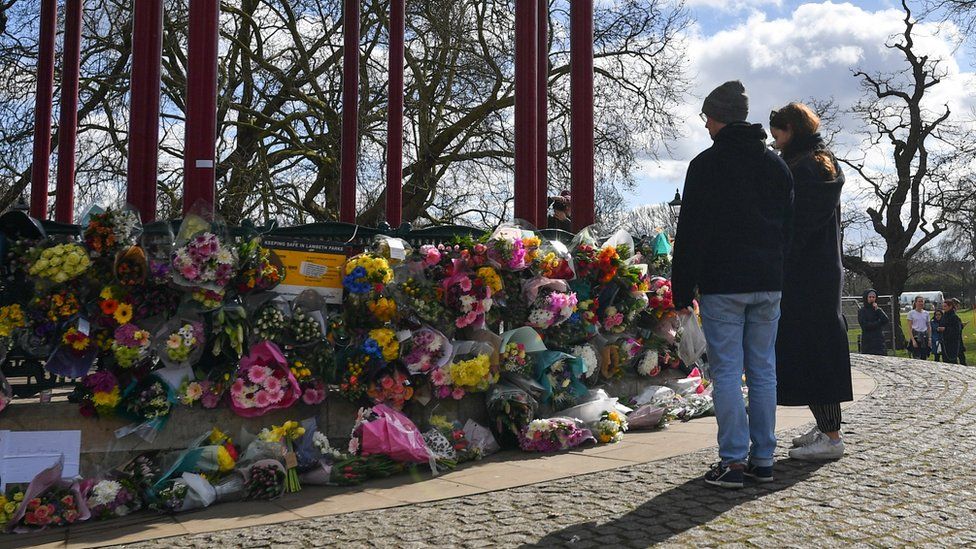 image copyrightReuters
image copyrightReutersGatherings planned in memory of Sarah Everard will be replaced with doorstep vigils, organisers have said.
A vigil had been planned on Clapham Common - near where the 33-year-old was last seen alive - on Saturday, with other events scheduled across the UK.
But organisers said police failed to "constructively engage" on how it could be held under Covid restrictions.
Instead, they have urged people to hold candles or other lights on their doorsteps at 21:30 GMT.
Reclaim These Streets, which was behind the vigil in Clapham, south London, asked people to shine a light to coincide with the time Ms Everard was last seen.
It comes after a High Court judge refused to intervene in the group's legal challenge on Friday over the right to gather to protest during Covid restrictions.
Met Police officer Wayne Couzens, 48, has appeared at Westminster Magistrates' Court court charged with Ms Everard's kidnap and murder.
Her death has prompted a public debate on women's safety.
Reclaim These Streets tweeted that the group had "repeatedly tried to find a way forward for the event", including staggering start times and splitting the event into time slots, but the Met Police had been "unwilling to commit to anything".
Anna Birley, of Reclaim These Streets, said holding the vigil would have put the group at "massive" legal risk for organising it, as well as risking women receiving fixed-penalty notices.
"The inability of Scotland Yard to constructively engage with us means we can't be confident they're going to police the event in a way that's Covid safe," she said.
Caitlin Prowle, another organiser, said they did not want to end up in a situation where they were having to raise funds to pay fines.
Organisers for vigils due to be held across the UK, including in Edinburgh, Cardiff, Birmingham, Leeds, York, Sheffield and Brighton, have since announced their events will also be cancelled.
Commander Catherine Roper, of the Met Police, said officers "take no joy in this event being cancelled, but it is the right thing to do given the real and present threat of Covid-19".
West Midlands Police said events in Coventry and Birmingham had been cancelled after discussions with the organisers.
Greater Manchester Police reminded people that congregating in large groups remained illegal due to current coronavirus restrictions but said it "absolutely supports" the doorstep vigils and "encourages our communities to join them".
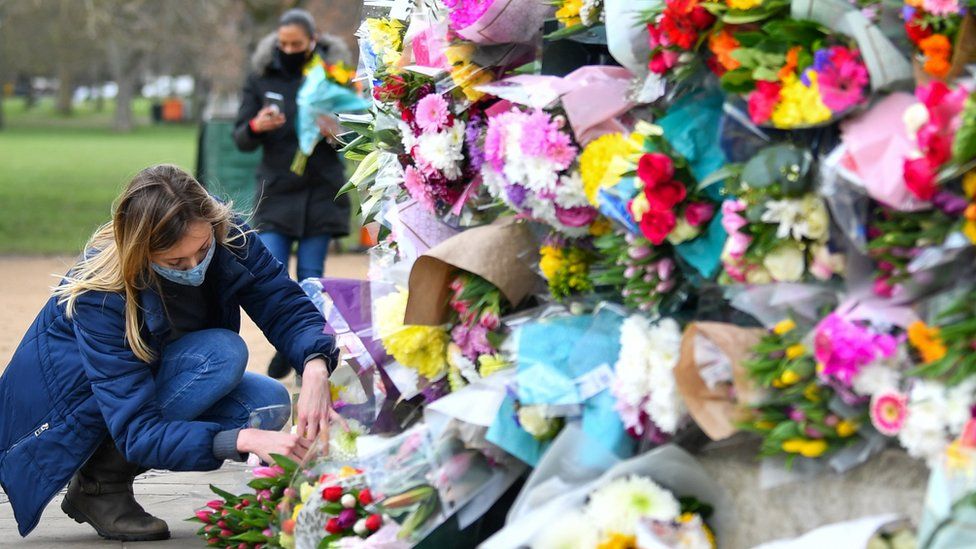 image copyrightReuters
image copyrightReuters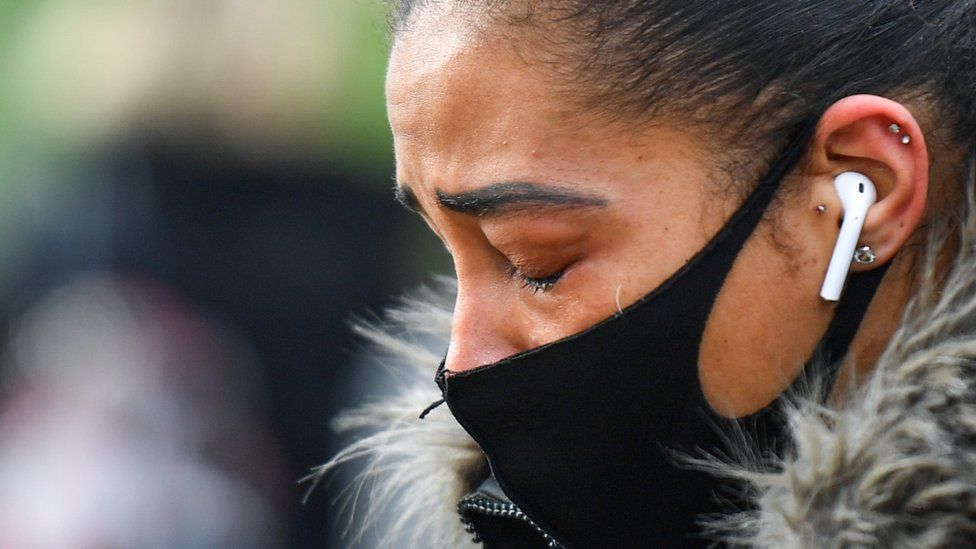 image copyrightReuters
image copyrightReuters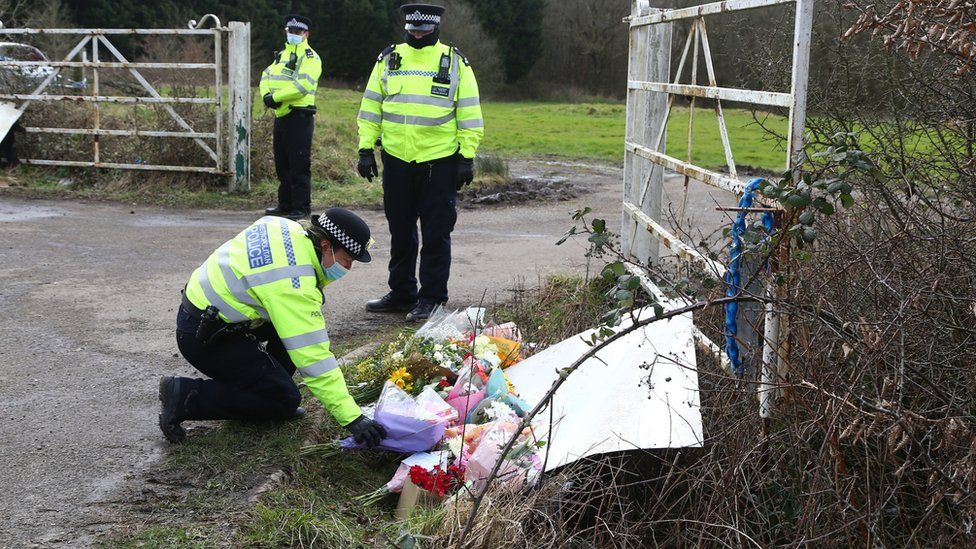 image copyrightPA Media
image copyrightPA Media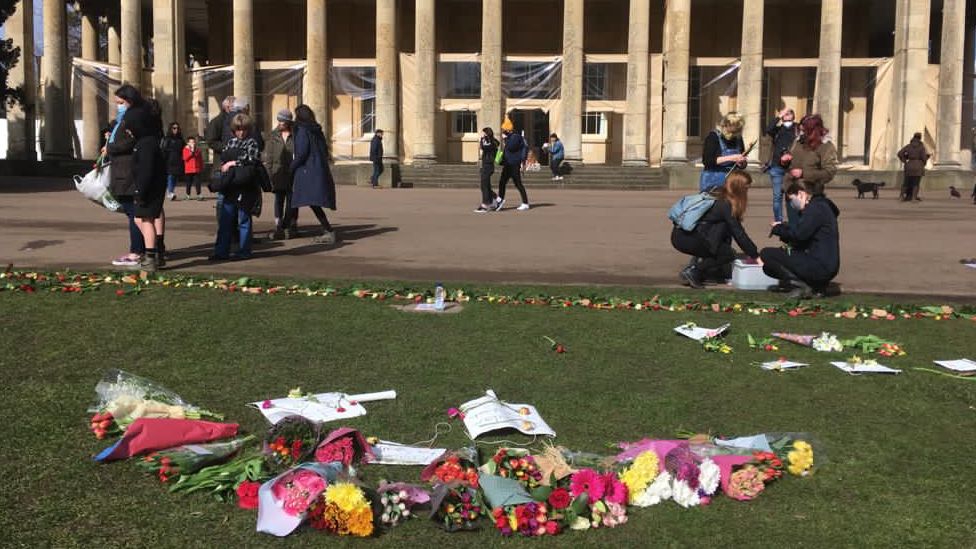
Reclaim These Streets said it would "strongly encourage" people not to gather at Clapham Common, adding that doing so might put people "legally at risk".
However, Sisters Uncut, which campaigns to prevent violence against women, said it still planned to attend the Clapham vigil, despite the organisers' cancellation.
Meanwhile, a fundraising page set up by the group for women's charitable causes has already generated more than half its £320,000 target.


For almost a year the ambiguities and omissions within the coronavirus restrictions have left both the police and public grasping for answers.
Gatherings in public are generally banned but, at the same time, the rules recognise there can be reasonable excuses to be outside.
The problem is that the law doesn't specify whether a demonstration on a major issue of public importance - such as this vigil - is one of those excuses or not.
Police officers must enforce the lockdown laws and they have been under pressure from ministers to do more to reduce the risk of the virus spreading.
But they also know that the right to protest is enshrined in the Human Rights Act, a cornerstone of our complex constitution.
That means they can't just impose a blanket ban on all protests under the coronavirus restrictions - and the judge in Friday's case urged both sides to keep talking.
In the absence of further legal clarity, the police maintained their position that the balance came down in favour of preventing a gathering, rather than allowing an exception to mark a very exceptional and tragic death.

In the ruling on Friday, Mr Justice Holgate refused an application by Reclaim These Streets for the High Court to make "an interim declaration" that any ban on outdoor gatherings under Covid rules was "subject to the right to protest".
The judge also refused to make a declaration that an alleged policy by the Met Police of "prohibiting all protests, irrespective of the specific circumstances" was unlawful.
Labour's Harriet Harman, who chairs the Joint Committee on Human Rights, said the law on freedom of association amid the coronavirus pandemic should be clarified.
"The relationship between the Human Rights Act and its protection of freedom of association and the new Covid regulations has not been clearly spelt out," she said.
"The police response to do a blanket ban, to say we can treat everybody equally by stopping all freedom of associations, is not the right way to go about it."
Labour MP Bell Ribeiro-Addy said the Met's decision to "refuse to constructively engage" with Reclaim These Streets was "deeply wrong", adding: "Women should not face arrest for showing solidarity."
Labour MP Apsana Begum said the government was proposing to strengthen its powers on protests via the Police, Crime, Courts and Sentencing Bill on Monday.
"Be under no illusion - our fundamental right to protest is under attack," she tweeted.
Liberal Democrats deputy leader Daisy Cooper tweeted: "It is the Govt's responsibility to ensure people can protest safely."
Senior Conservative MP Caroline Nokes, who had previously said she asked Home Secretary Priti Patel to "step in" and allow the vigil to go ahead, said she hoped people would now take the advice of organisers to gather virtually instead to "recognise the ongoing issue there is with violence against women and girls, perpetrated by men".
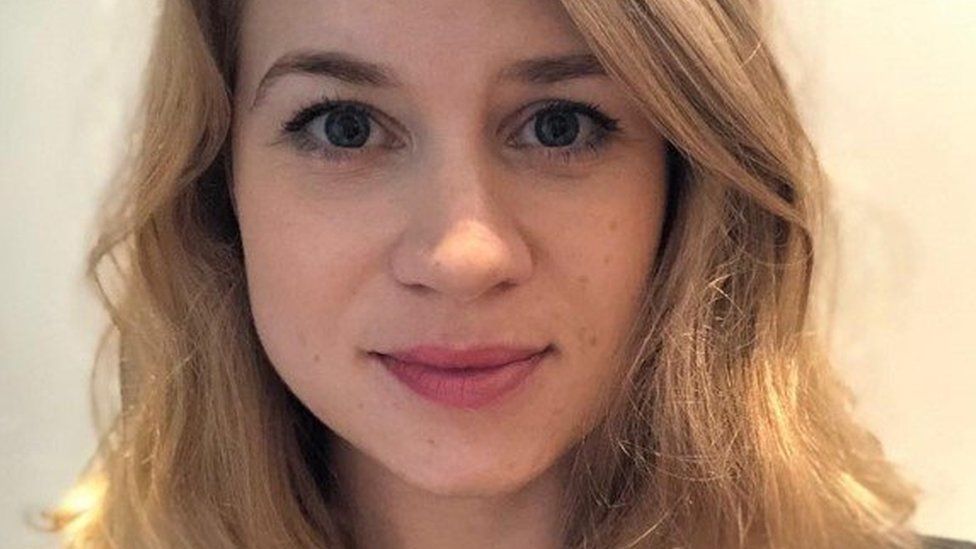

What are the rules on gatherings in England?
- Under the current lockdown rules two people can meet for recreation outside, which can include "coffee on a bench"
- From 29 March people will be allowed to meet outdoors, either with one other household or within the "rule of six"
- Police can break up illegal gatherings and issue fines of £10,000 to someone holding a gathering of more than 30 people
- During last year's restrictions, when Black Lives Matter and anti-lockdown demonstrations took place, police took a hands-off approach to protests



Have you been affected by any of the issues raised? You can get in touch by emailing haveyoursay@bbc.co.uk.
Please include a contact number if you are willing to speak to a BBC journalist. You can also get in touch in the following ways:
- WhatsApp: +44 7756 165803
- Tweet: @BBC_HaveYourSay
- Please read our terms & conditions and privacy policy



No comments